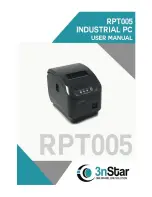
Programming options
5.4 Other features to make programming easy
Easy Book
Manual, 05/2009, A5E02486774-01
69
5.4.3
Saving elements in the project or global libraries
The global and project libraries allow you to reuse the stored objects throughout a project or
across projects. For example, you can create block templates for use in different projects
and adapt them to the particular requirements of your automation task. You can store a
variety of objects in the libraries, such as FCs, FBs, DBs, device configuration, data types,
watch tables, process screens, and faceplates. You can also save the components of the
HMI devices in your project.
Each project has a project library for storing the objects to
be used more than once within the project. This project
library is part of the project. Opening or closing the project
opens or closes the project library, and saving the project
saves any changes in the project library.
You can create your own global library to store the objects
you want to make available for other projects to use. When
you create a new global library, you save this library to a
location on your computer or network.
STEP 7 Basic provides several global libraries for use by any project.
Note
Saving the project does not save or update the global library. To save a global library that
you added or modified, use the "Save the changes to the library" button in the tool bar of the
global library.
5.4.4
Cross reference to show usage
The Inspector window displays cross-reference information about how a selected object in
used throughout the complete project, such as the user program, the CPU and any HMI
devices. The "Cross-reference" tab displays the instances where a selected object is being
used and the other objects using it. The Inspector window also includes blocks which are
only available online in the cross-references.
Note
You do not have to close the editor to see the cross-reference information.















































